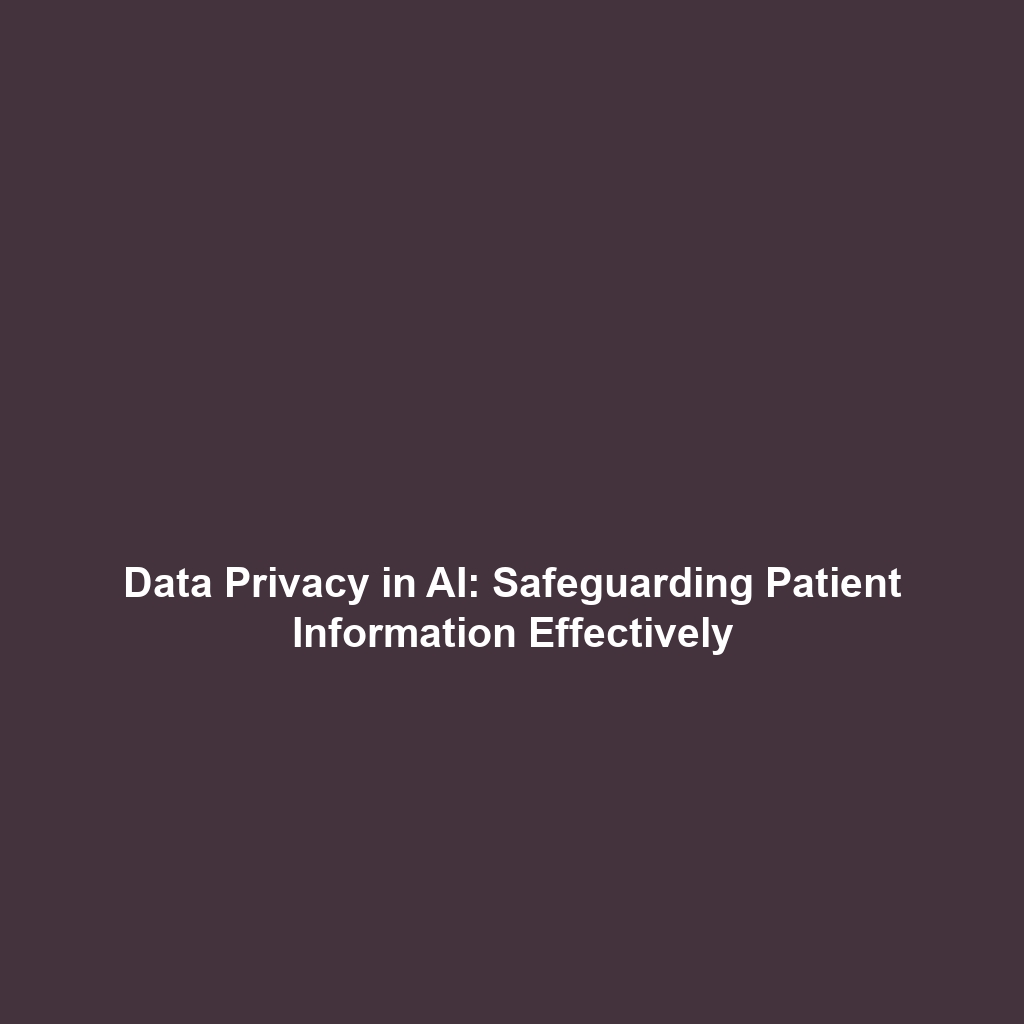Data Privacy and Security: Protecting Patient Information in AI Systems
As healthcare increasingly adopts artificial intelligence (AI), the importance of data privacy and security has never been more pressing. Protecting patient information in AI systems is critical not only for maintaining patient trust but also for complying with legal regulations. This article delves into the core concepts, applications, challenges, and future innovations in protecting sensitive patient data within the AI healthcare landscape.
Key Concepts of Data Privacy and Security in AI Systems
Understanding the key concepts behind data privacy and security in AI systems is essential to grasping how they function within healthcare. Here are important principles:
- Data Encryption: Transforming readable data into an encoded format to prevent unauthorized access.
- Access Control: Policies and mechanisms to restrict who can access patient data.
- Data Minimization: Collecting only the data necessary to achieve a specific purpose, thus limiting exposure.
- Compliance Regulations: Adhering to laws such as HIPAA in the U.S. which governs the disclosure of patient information.
Applications and Real-World Uses
The applications of data privacy and security in AI systems are vast and impactful. Here are notable examples:
- Predictive Analytics: Healthcare providers use AI to analyze patient data for early diagnosis while ensuring privacy measures are in place.
- Telehealth Services: Data encryption and secure communication channels protect patient information during virtual consultations.
- Clinical Trial Management: AI systems handle sensitive data for trials while adhering to strict privacy standards and consent protocols.
Current Challenges
Despite advancements, there are significant challenges in implementing data privacy and security in AI systems within healthcare:
- Data Breaches: Increasing attacks on healthcare data can expose sensitive patient information.
- Interoperability Issues: Difficulty in ensuring data security across different systems that may not communicate effectively.
- Regulatory Compliance: Keeping up with evolving privacy laws and ensuring all systems meet these requirements.
Future Research and Innovations
Looking ahead, research in data privacy and security will focus on several innovations that could transform AI in healthcare:
- Blockchain Technology: Utilizing decentralized ledgers to enhance data integrity and security.
- AI-Driven Security Solutions: Implementing machine learning algorithms to detect and respond to security threats in real time.
- Privacy-Preserving Computation: Exploring advanced techniques such as federated learning to analyze data without compromising patient privacy.
Conclusion
In conclusion, the protection of patient information in AI systems is vital for the future of healthcare. As we navigate the complexities of implementing AI, prioritizing data privacy and security will be necessary to earn patient trust and comply with regulations. For further reading on related topics, visit our articles on AI Ethics in Healthcare and Data Protection Strategies.
